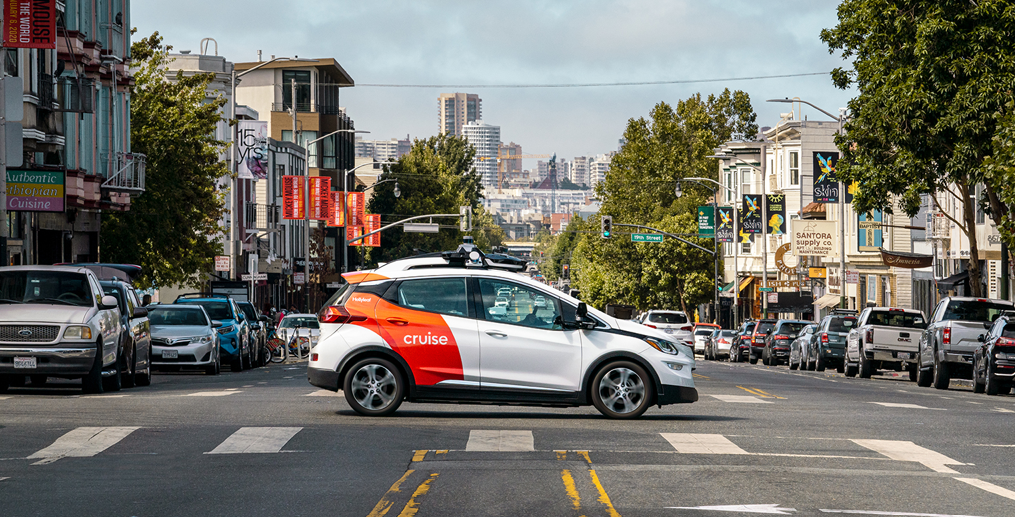 EMERGING TECH
EMERGING TECH
 EMERGING TECH
EMERGING TECH
 EMERGING TECH
EMERGING TECH
General Motors Co.’s Cruise autonomous driving unit is laying off 900 employees, or nearly a quarter of its workforce, amid a major overhaul of its commercialization efforts.
The job cuts were first reported by TechCrunch this morning. A Cruise spokesperson later confirmed the move, sending parent company GM’s stock up more than 6% in trading.
The workforce reduction comes only a day after nine executives, including former Chief Operating Officer Gil West, left the autonomous vehicle developer. The departures are connected to a recent accident in which an autonomous Cruise vehicle dragged a pedestrian 20 feet. The GM unit’s co-founders, Kyle Vogt and Dan Kan, have stepped down as well.
Cruise shut down its fleet of about 950 autonomous vehicles to address safety concerns. The GM unit also changed its commercialization plan, which would have seen it launch an autonomous ride-hailing service in more than a dozen cities next year. Cruise’s new goal is to relaunch the service in one city to start and “enhance our safety standards and processes before we scale.”
The layoffs announced today are the result of the decision to scale back commercialization efforts, Cruise President and Chief Technology Officer Mo Elshenawy told employees in an internal memo. The job cuts mainly affect Cruise’s commercial operations group and related teams. The engineering organization, which employs the bulk of the GM unit’s workforce, is largely unaffected.
Departing employees will receive at least 16 weeks of severance pay, more than four months of continued healthcare coverage and stock vesting. Additionally, Cruise will provide immigration and career support. In conjunction, the GM unit is reorganizing some of the remaining teams to more closely align their work with its revised commercialization roadmap.
“These changes reflect our decision to focus on more deliberate commercialization plans with safety as our north star,” Cruise told CNBC in a statement. “We are supporting impacted Cruisers with strong severance and benefits packages and are grateful to the departing employees who played important roles in building Cruise and supporting our mission.”
The company is scaling back not only the pace of its commercialization efforts but also its product development roadmap. A few years ago, the GM unit announced plans to mass produce an autonomous vehicle called Origin that has no steering wheels or pedals. Cruise is ending work on the Origin but “not losing sight of our work on future programs,” Elshenawy wrote in today’s memo.
In the near term, Cruise’s development effort will focus on building autonomous versions of parent GM’s Chevrolet Bolt electric car. Most of the existing vehicles in its fleet are based on the Bolt. Cruise’s long-term goal is to develop taxis featuring Level 4 autonomy, or the ability to drive without human input in most situations.
The refocus aligns with GM’s previously stated goal of reducing Cruise’s operating expenses. In its most recent quarterly earnings report, the automaker disclosed that the unit lost about $1.9 billion between January and September. Last month, GM announced plans to reduce Cruise’s spending by “hundreds of millions of dollars” in the coming year.
Cruise originally became part of the automaker through a 2016 acquisition reportedly worth $1 billion. Over the following years, the autonomous vehicle developer raised billions of dollars in funding from GM and outside investors. Cruise competes with multiple well-funded autonomous driving startups as well as Alphabet Inc.’s Waymo unit, which is currently testing an autonomous ride-hailing service in multiple cities.
THANK YOU